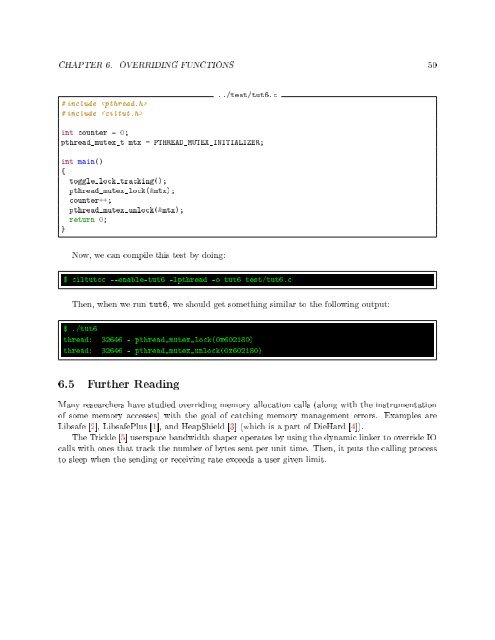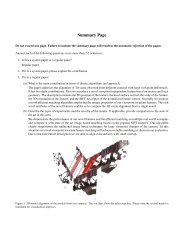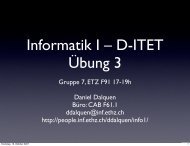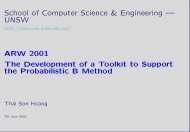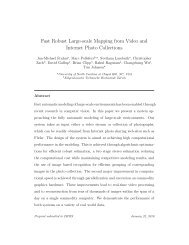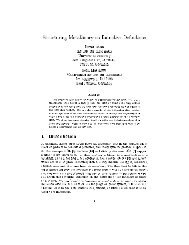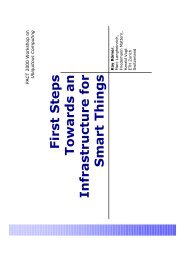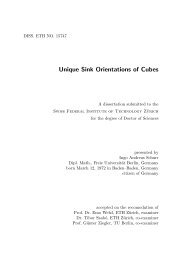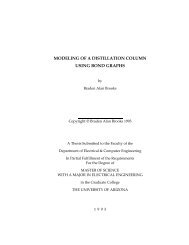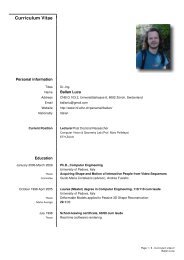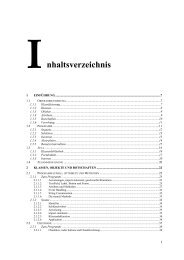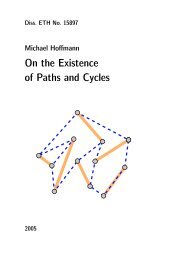A CIL Tutorial - Department of Computer Science - ETH Zürich
A CIL Tutorial - Department of Computer Science - ETH Zürich
A CIL Tutorial - Department of Computer Science - ETH Zürich
Create successful ePaper yourself
Turn your PDF publications into a flip-book with our unique Google optimized e-Paper software.
CHAPTER 6. OVERRIDING FUNCTIONS 50<br />
# include <br />
# include <br />
../test/tut6.c<br />
int counter = 0;<br />
pthread_mutex_t mtx = PTHREAD_MUTEX_INITIALIZER;<br />
int main()<br />
{<br />
toggle_lock_tracking();<br />
pthread_mutex_lock(&mtx);<br />
counter++;<br />
pthread_mutex_unlock(&mtx);<br />
return 0;<br />
}<br />
Now, we can compile this test by doing:<br />
$ ciltutcc --enable-tut6 -lpthread -o tut6 test/tut6.c<br />
Then, when we run tut6, we should get something similar to the following output:<br />
$ ./tut6<br />
thread:<br />
thread:<br />
32646 - pthread mutex lock(0x602180)<br />
32646 - pthread mutex unlock(0x602180)<br />
6.5 Further Reading<br />
Many researchers have studied overriding memory allocation calls (along with the instrumentation<br />
<strong>of</strong> some memory accesses) with the goal <strong>of</strong> catching memory management errors. Examples are<br />
Libsafe [2], LibsafePlus [1], and HeapShield [3] (which is a part <strong>of</strong> DieHard [4]).<br />
The Trickle [5] userspace bandwidth shaper operates by using the dynamic linker to override IO<br />
calls with ones that track the number <strong>of</strong> bytes sent per unit time. Then, it puts the calling process<br />
to sleep when the sending or receiving rate exceeds a user given limit.


